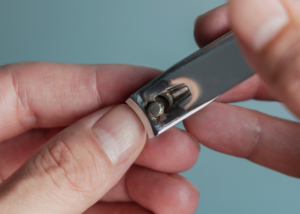Quran
Hadith
Islamic Text
بِسْمِ اللَّهِ الرَّحْمَنِ الرَّحِيمِ
In the Name of Allah Most Merciful Most Kind
Short Answer
Yes, there is a Hadith saying health is better than wealth for a person of piety. This Hadith is Sahih according to Imam al-Dhahabi.
Hadith
عَنْ مُعَاذِ بْنِ عَبْدِ اللَّهِ بْنِ خُبَيْبٍ، عَنْ أَبِيهِ، عَنْ عَمِّهِ، قَالَ: كُنَّا فِي مَجْلِسٍ، فَجَاءَ النَّبِيُّ صَلَّى اللهُ عَلَيْهِ وَسَلَّمَ وَعَلَى رَأْسِهِ أَثَرُ مَاءٍ، فَقَالَ لَهُ بَعْضُنَا: نَرَاكَ الْيَوْمَ طَيِّبَ النَّفْسِ، فَقَالَ: أَجَلْ وَالْحَمْدُ لِلَّهِ. ثُمَّ أَفَاضَ الْقَوْمُ فِي ذِكْرِ الْغِنَى، فَقَالَ: لَا بَأْسَ بِالْغِنَى لِمَنِ اتَّقَى، وَالصِّحَّةُ لِمَنِ اتَّقَى خَيْرٌ مِنَ الْغِنَى، وَطِيبُ النَّفْسِ مِنَ النَّعِيمِ
Mu’adh bin Abdullah bin Khubaib narrated from his father, that his paternal uncle said: We were sitting in a gathering, and the Prophet ﷺ came with traces of water on his head. One of us said to him: We see that you are of good cheer today. He ﷺ said: Yes, praise is to Allah. Then he ﷺ benefitted the people by mentioning wealth. He ﷺ said: There is nothing wrong with being wealthy for a person who is pious. But good health for the pious is better than wealth. And being of good cheer is a blessing. (Sunan Ibn Maja, 2141).
Authenticity
The Hadith above asserts that health is better than wealth for a person of piety (Taqwa). It was also narrated by Imam al-Hakim in his Mustadrak (2131). Imam al-Hakim claimed that it is a Sahih Hadith. Importantly, Imam al-Dhahabi also concurred with his claim. When considering the authenticity of Hadith in al-Mustadrak, it is essential to check the Hadith grading of Imam al-Dhahabi and not rely on Imam Hakim alone.
Health is a great blessing
Too many people undermine the blessing of health. This is exacerbated in our time due to the immense importance placed upon material wealth. However, such misguidance is certainly incredibly detrimental to one’s religious practice. Further, it is also harmful to general wellbeing. If a person is always chasing after material wealth and does not recognise the blessings one has, then such a person can never be happy or grateful.
Additionally, health is a far greater blessing than wealth. Many people who have great wealth, but very poor health would readily give up the wealth to gain health. This is a clear proof of what the Prophet ﷺ taught. Namely, health is better than wealth.
Therefore, we should be grateful for the blessing of health and make the most of it. Being grateful for a blessing allows us to benefit from it. As well as that, gratefulness brings reward. This is because expressing gratitude is a religious obligation.
Positivity
In the Hadith above, the Prophet ﷺ also taught us that being bright and cheery is a blessing. In fact, it is one of the great gifts of Allah (Most High). If Allah (Most High) blesses a person with being upbeat and positive then it does not matter how things are going outwardly as inwardly this person will remain continuously happy and content.
وَطِيبُ النَّفْسِ أَيِ: انْشِرَاحُ الصَّدْرِ الْمُقْتَضِي لِلشُّكْرِ، وَالصَّبْرُ الْمُسْتَوِي عِنْدَهُ الْغِنَى وَالْفَقْرُ. (مرقاة المفاتيح)
Being of good cheer. Meaning, relief from concerns and difficulties. Which dictates gratitude and patience. Where wealth and poverty become equal. (Imam Ali al-Qari, Mirqaat al-Mafateeh).
In the Nass above, Imam Ali al-Qari is explaining the words of the Prophet ﷺ, Teeb al-Nafs. This has been translated as being of good cheer. He explains that it refers to being free of concerns and constrictions. This is because such a state will inevitably render a person upbeat and bright.
Conclusion
We do have an authentic Hadith in which the Prophet ﷺ said: Health is better than wealth. This Hadith is very important since it makes people focus on the blessings they currently have rather than always looking to chase more.
In addition, the Hadith also speaks to the blessing of being positive and cheerful. This is an incredibly important teaching in Islam. Unfortunately, many people are neglectful or ignorant of it.
And Allah Most High Knows Best.
–Answered by Shaykh Noorud-deen Rashid (05.04.24)






